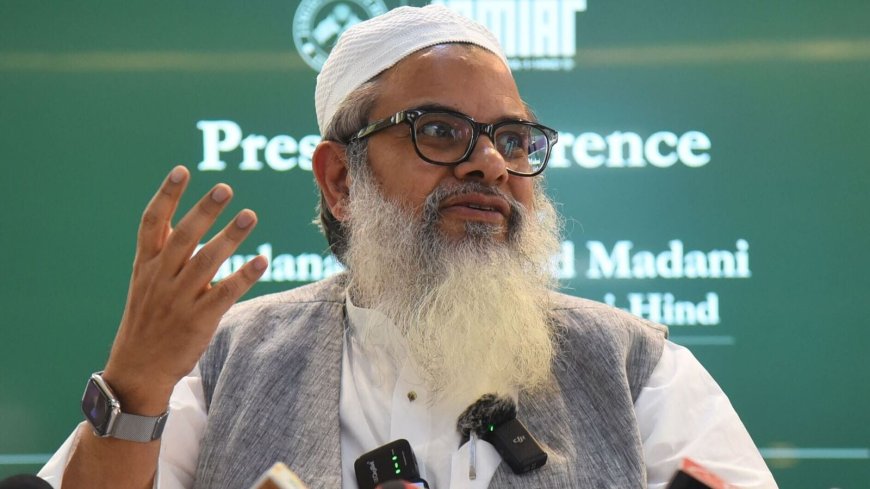Jamiat chief claims ‘BJP and its friends’ trying to help ‘builders get lands in prime locations’ with Waqf Act
Mahmood Madani, chief of Jamiat Ulema-e-Hind, accused the BJP of aiding land grabbers through the controversial Waqf (Amendment) Act, 2025. Protests in Murshidabad have resulted in fatalities and injuries, with Madani calling for peaceful demonstrations against the Act's perceived injustices.

Jamiat Chief Claims ‘BJP and Its Friends’ Helping Builders with Waqf Act
In a recent statement that has sparked significant debate, the Chief of Jamiat Ulama-i-Hind has claimed that the ruling Bharatiya Janata Party (BJP) and its associates are attempting to facilitate builders in acquiring land in prime locations through the Waqf Act. This assertion not only raises questions regarding the intent behind the legislation but also highlights concerns over the safeguarding of Waqf properties, which are intended for charitable and community purposes.
The Context of the Waqf Act
The Waqf Act was established to govern properties held in trust for charitable purposes under Islamic law. These properties are critical for community welfare, often used for mosques, schools, and hospitals. However, the Jamiat chief argues that there is a growing trend of misusing this act, allowing influential builders to gain access to valuable lands that should ideally remain protected for public benefit.
Implications for the Community
This claim brings to light the potential risks that the community faces if land designated for Waqf usage is diverted to private development purposes. The alleged collusion between political entities and builders raises concerns about corruption and favoritism within land acquisition processes, which could ultimately undermine the rights of the community to access and benefit from these resources.
Political Reactions
The statement from the Jamiat chief has elicited responses from various political leaders and civic organizations. Critics of the BJP have seized the opportunity to spotlight issues they perceive as part of a broader agenda against minority rights and the preservation of communal property. Proponents of the government, however, dismiss these claims as mere political posturing aimed at inciting division.
Calls for Transparency
In light of these accusations, there are increasing calls for transparency in the dealings involving Waqf properties and a comprehensive review of the Waqf Act itself. Activists argue that a clear and fair regulatory framework is essential to prevent the exploitation of these assets for private gains. They advocate for community involvement in decisions regarding Waqf lands, ensuring that such properties serve their intended charitable purposes.
As the debate unfolds, it is vital for stakeholders, including government officials, community leaders, and civil society, to engage in constructive dialogue. This approach not only promotes transparency but also safeguards the interests of the community reliant on Waqf properties. For more updates, visit dharmyuddh.com.
In conclusion, the claims made by the Jamiat chief underscore the critical need for vigilance and accountability in the management of Waqf properties, ensuring that they remain assets for collective benefit rather than instruments of private profit. Keywords: Jamiat chief statement BJP builders land acquisition, Waqf Act controversy, political reactions to Waqf properties, community welfare and Waqf lands, misuse of Waqf Act in India, transparency in Waqf property management, influence of builders in politics, safeguarding community resources in India.







